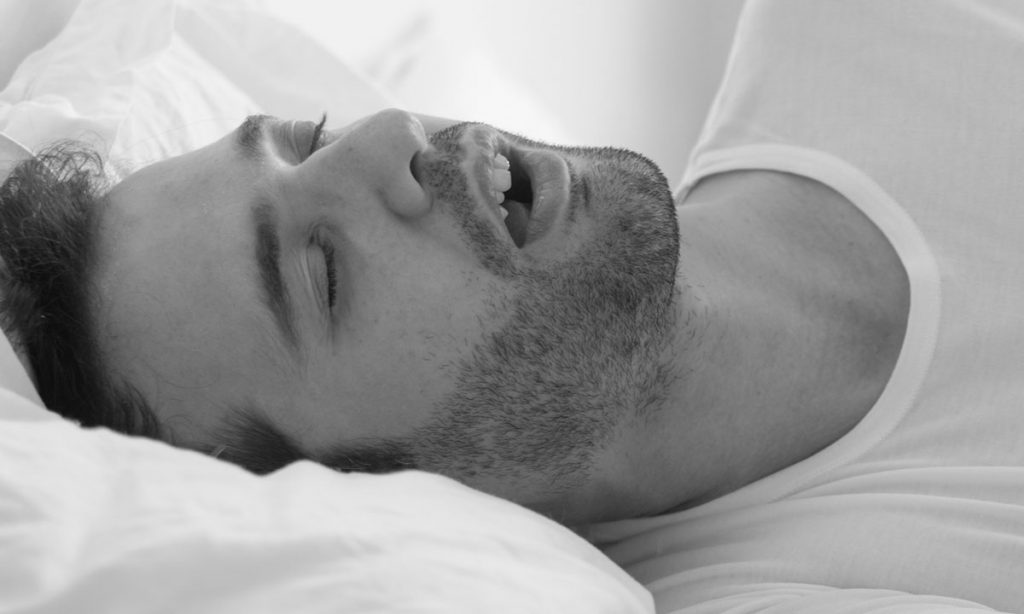
ADVENT knows when you or your partner are suffering from snoring or sleep apnea. These sleeping conditions can lead to many sleepless nights, a cycle of temporary fixes and frustration, or even a sleep divorce.
Snoring and sleep apnea go hand-in-hand. You may snore and not have sleep apnea, but typically, if you suffer from sleep apnea, you experience snoring. Here’s the difference between snoring and sleep apnea, the symptoms of sleep apnea, and what you can do to treat both.
What is Snoring?
Snoring occurs when air flows past relaxed tissues and muscle in the throat. The uvula is lowered by the relaxation, producing a vibration and the obnoxious noise we know as snoring.
Snoring can occur temporarily or due to an underlying issue. Things like frequent colds, alcohol abuse, weight fluctuation, and age can induce snoring. It can also be indicative of serious health conditions, such as sleep apnea.
What is Sleep Apnea?
There are three types of sleep apnea: obstructive, central, and mixed. The most common form of sleep apnea is obstructive sleep apnea (OSA). This form occurs when the throat muscles relax causing the soft tissue to collapse which results in your breathing to repeatedly stop and start.
The most prominent symptom associated with sleep apnea is loud snoring. If untreated, sleep apnea can lead to high blood pressure, cardiovascular disease, memory loss, weight gain, impotence and important to note that loud snoring can also be attributed to obesity, daytime fatigue, awakening to shortness of breath during sleep, dry mouth and headaches. If you're unsure what is causing your snoring it may be time to consult with an ENT specialist.
Treating Your Snoring & Sleep Apnea
You’ve already made too many trips to the pharmacy and had more nights on the couch than you’d care to admit because of your irregular sleeping. You may have even spent money on "fast relief" remedies from certain online shopping hubs. Well, the search stops here.
ADVENT knows you need to breathe right to sleep right. In fact, nearly 80% of those suffering from snoring and sleep apnea have blockage in both the throat and nose. To get a better understanding of possible treatment we’ve pioneered The Breathing Triangle® evaluation.
With a proper breathing triangle evaluation, we can detect any underlying issues that may be at the root of your snoring. With the help of an at home sleep study, we can evaluate your snoring and oxygen levels to detect sleep apnea.
If determined you suffer from snoring and/or sleep apnea, you may find that you are a candidate for one of ADVENT’s simple, in-office solutions. An office-based solution like balloon sinuplasty or turbinate reduction can help to open up the airways, potentially decreasing snoring or sleep apnea. These procedures can also make a CPAP or oral appliance therapy more tolerable. Once the nasal airways are more open, snoreplasty is a possible solution that can address the afflicted areas of the throat.
Whether you or your partner are suffering from snoring or sleep apnea, you both deserve to breathe well, sleep well and live better.


